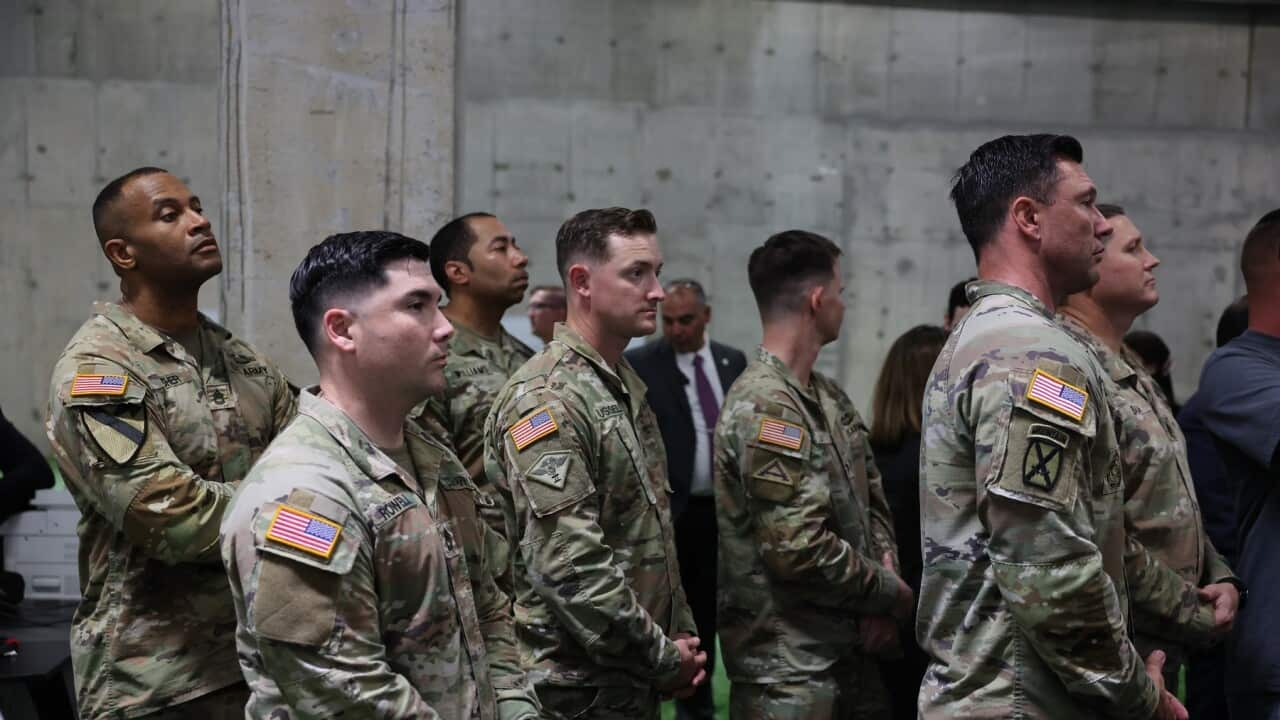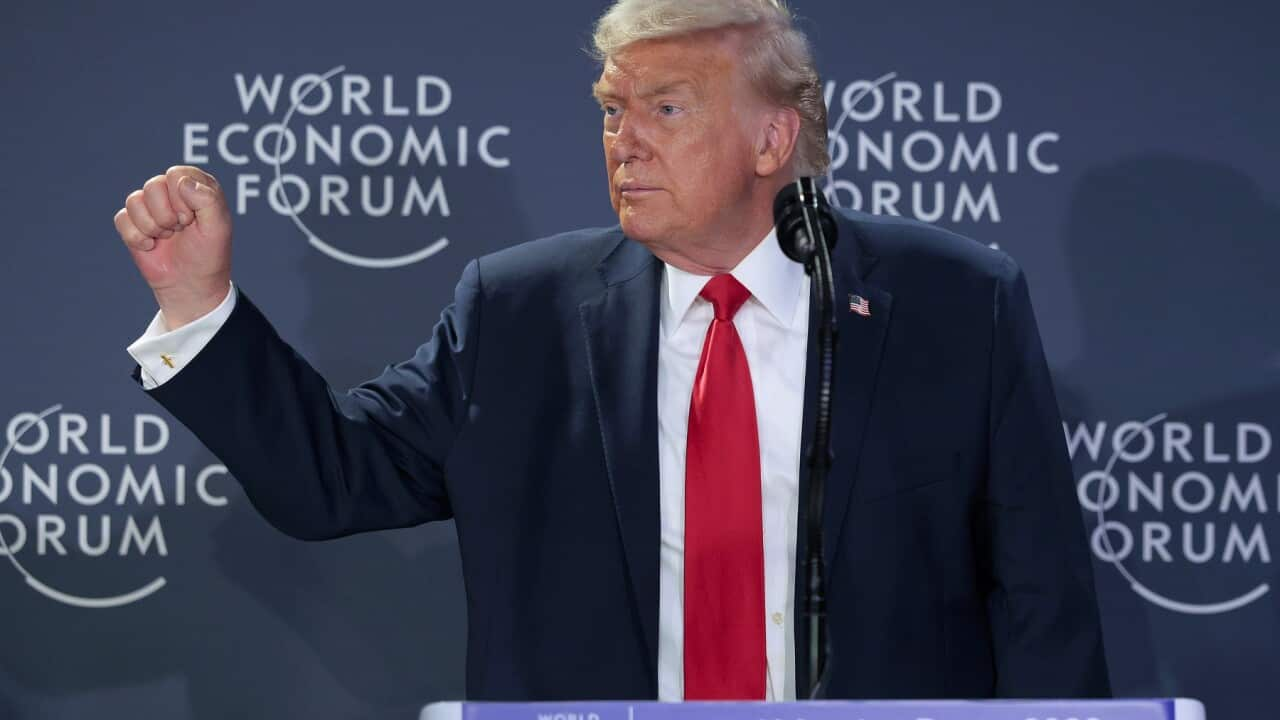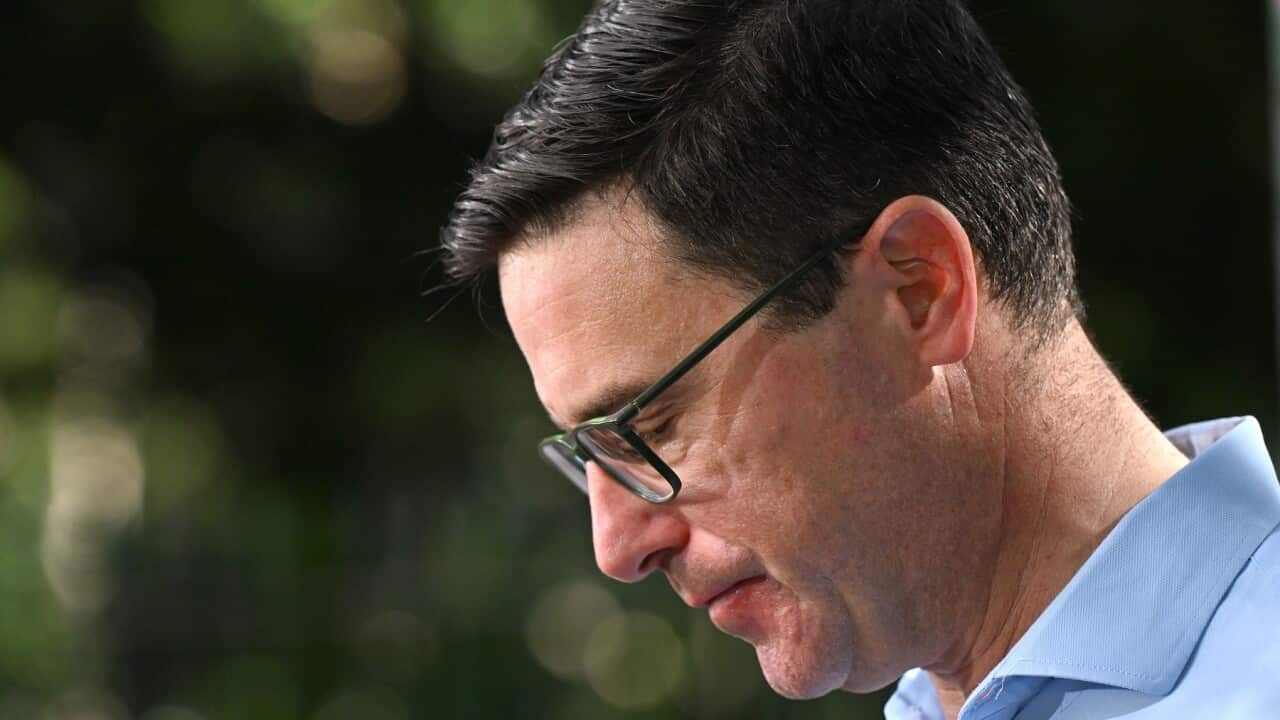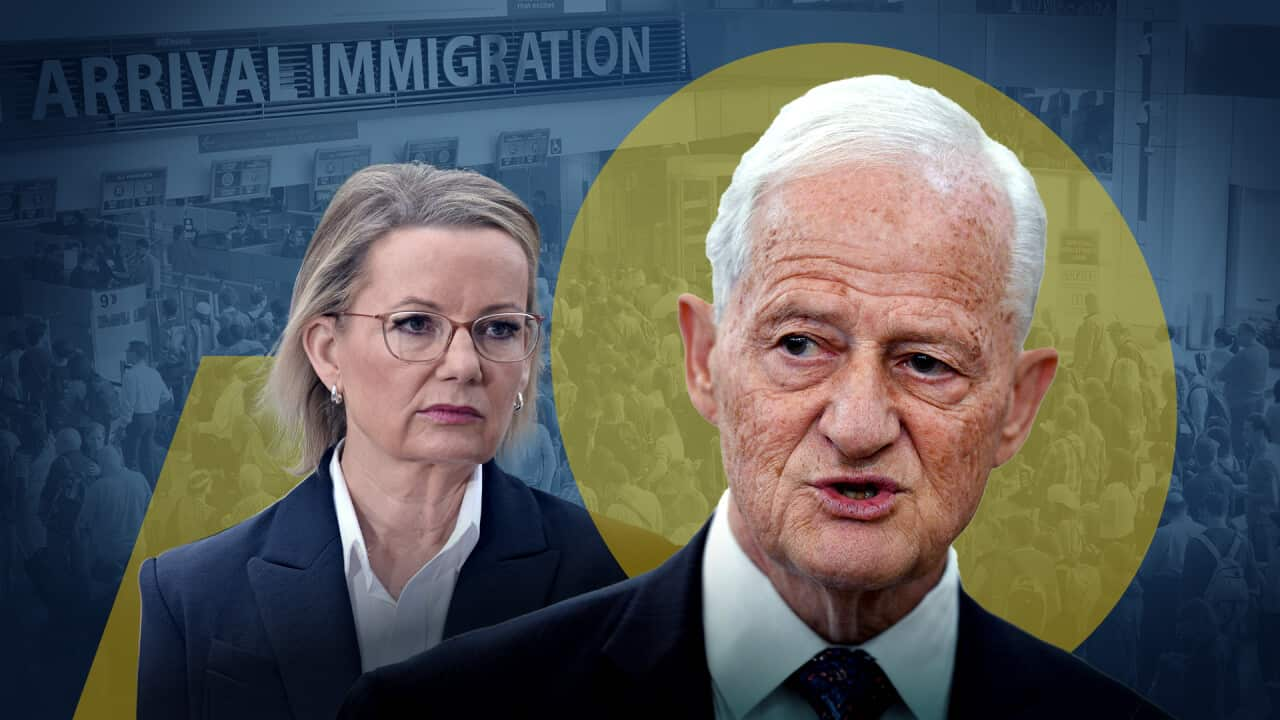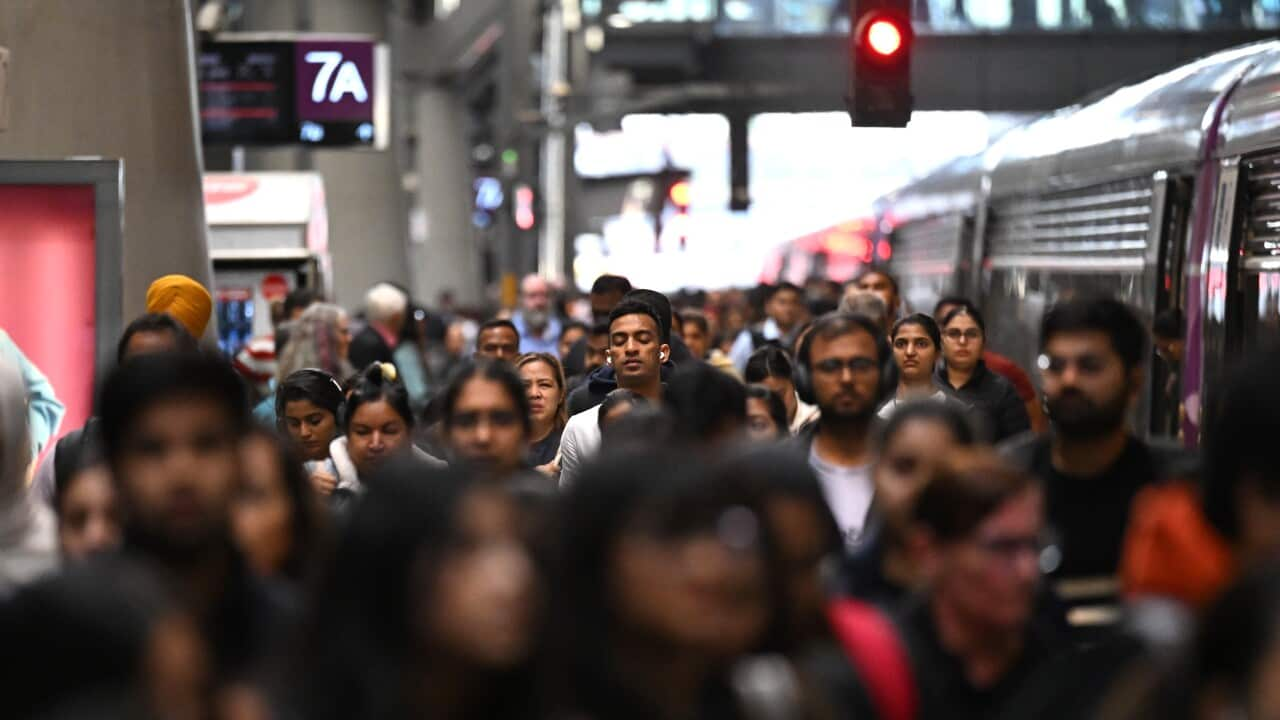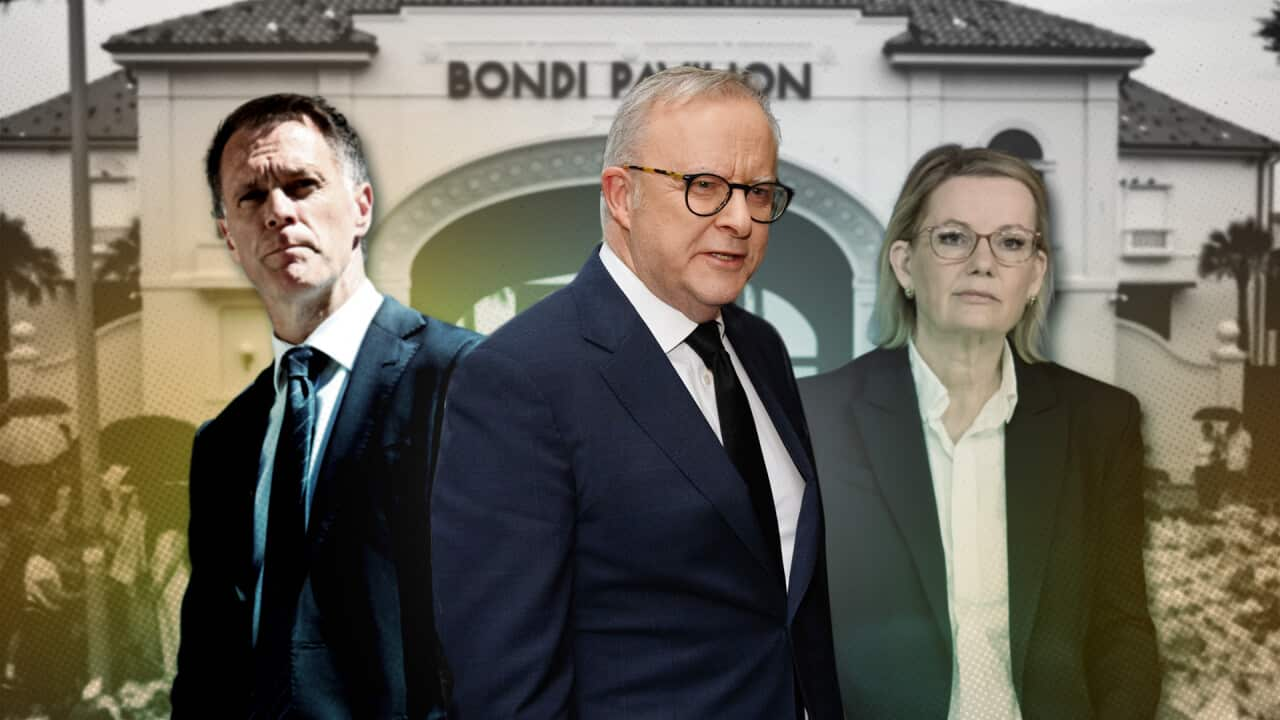Listen to Australian and world news, and follow trending topics with SBS News Podcasts.
Australia is boosting international efforts to stabilise the Gaza region by sending an Australian Defence Force liaison officer to a new US-led coordination centre in Israel.
The federal government has confirmed the officer will contribute to "planning and coordination" efforts as the humanitarian and security challenges in the region intensify following the ceasefire.
Run by United States Central Command, the Civil-Military Coordination Centre - or CMCC - is a key component of US President Donald Trump's 20-point peace plan for Gaza.
Its goal is to bring partner nations together to coordinate aid, security, and reconstruction efforts.
Announced by President Trump and Israeli Prime Minister Benjamin Netanyahu on September 29th, the plan was negotiated with many Arab and Muslim countries - but notably excluded the occupied Palestinian territories.
Cabinet Minister Catherine King has spoken to the ABC but would not confirm whether more Australian personnel would be sent to the Middle East.
"Well the liaison officer is a liaison officer with the Australian Defence Force, so that, obviously, is in line with our efforts to participate in the peace process that President Trump has negotiated. Obviously, this is the request that's been (made) of us, and that's what we've put in place to date."
A government statement says while Australia's strategic priority remains the Indo-Pacific region, the government will always carefully consider opportunities to contribute to international peace and security.
Liberal Senator Dave Sharma is a former Australian ambassador to Israel.
He's told Sky News that given the country's long record of Middle East peacekeeping, it shouldn't avoid helping Gaza.
This was re-iterated by Dr Ian Parmeter from the Australian National University, a research scholar at the centre for Arab and Islamic studies.
"We've certainly been involved with, we also have been involved in other peacekeeping efforts after the end of the Iran-Iraq war in 1988. We've contributed consistently to in relation to Israel and and its neighbours, through the United Nations Truce Supervisory Organisation and some Australian troops have worked in southern Lebanon with the United Nations interim force in Lebanon and also on the Golan Heights at different times with the disengagement observer force."
Dr Parmeter explains what 'planning and coordination' actually means in this context.
"If this is, as we assume it will be, a stabilisation force involving troops from from several Arab and Muslim countries, they will need overall coordination. And to do something like that, you have to have questions of just the size of it, where they'll be based, what equipment they're going to be needing, whether they'll need any training in advance and also coordinating between the international stabilisation force and Palestinians on the ground in Gaza, but also with Israelis, so that each side has got a clear understanding of what the stabilisation force will be doing."
The US is to provide up to 200 troops to support the new international task force, though they won't be deployed inside Gaza.
This force is designed to support the ceasefire and push forward with President Trump’s peace plan.
But not everyone is so optimistic about Australia's involvement.
University of Sydney lecturer Doctor Martin Kear suggests the move is mostly a symbolic one.
He says Australia's minor contribution is less about on-the-ground impact, and more about appeasing the US administration, showing that Australia is involved in what the U-S is involved in.
Dr Kear does, however, note one possible benefit:
"Potentially, this liaison unit could go into Gaza - I doubt whether any Australian diplomats would be allowed to go into Gaza. So perhaps that's an 'eyes on the ground' for the government. But who knows what this Liaison Unit will do."
Dr Kear's view of President Trump's peace plan is that it revolves around the issue of power.
"The ambiguity of the plan gives Israel carte blanche to act as it wants to in Gaza, even the international security force, which is supposed to take over security responsibility.... how that happens is it's under negotiation with the Israelis. The Palestinians have no voice in this at all. At best, the Palestinian Authority would be responsible for the delivery of aid to Gazans and that's the extent of their responsibility so the Palestinians have no voice on this 'board of peace'."
The focus is now on the plan's second phase, which demands Hamas disarm and establishes an internationally-supervised Palestinian committee to run Gaza.
Hamas has resisted disarmament, saying it will only give up weapons to a future Palestinian state.
